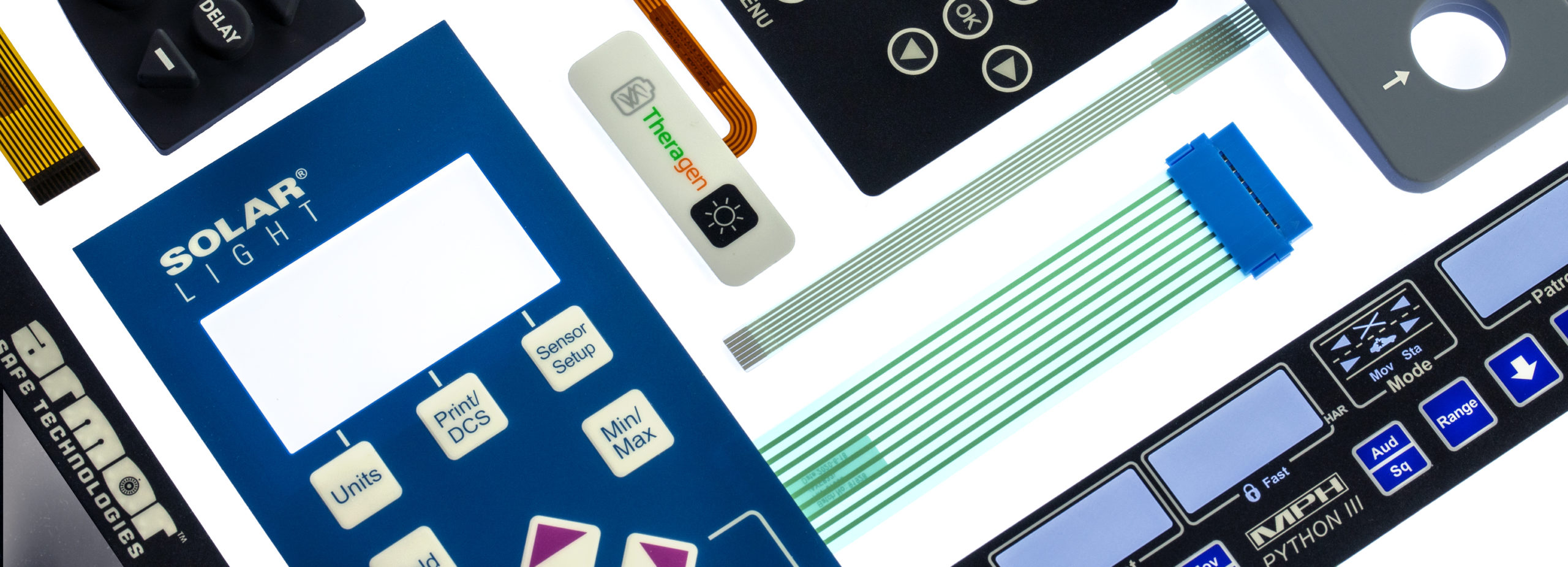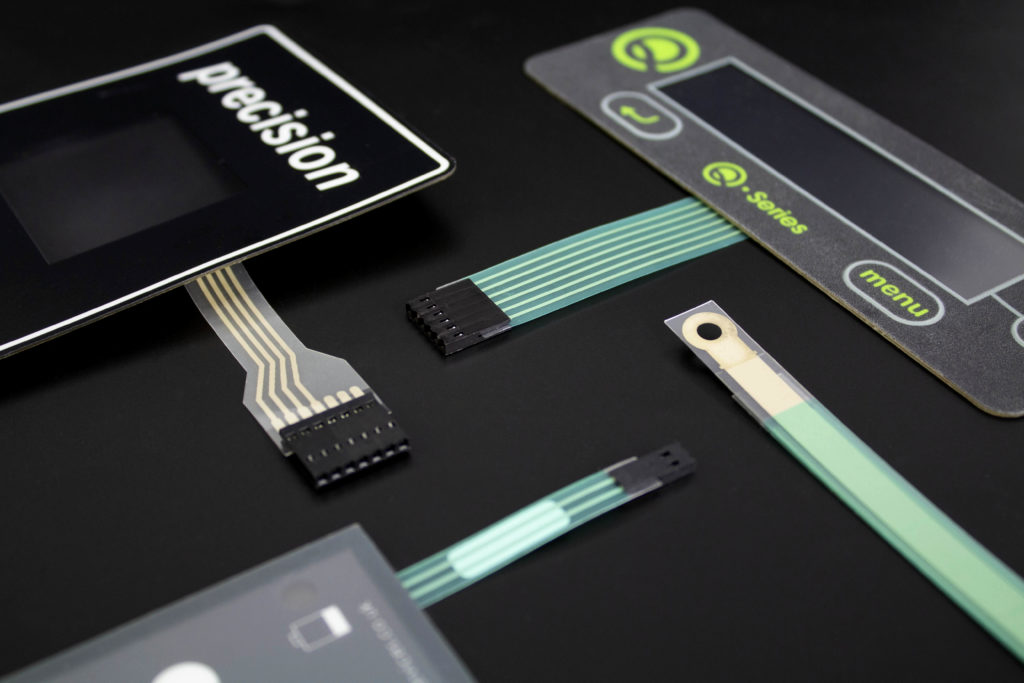Understanding the Technology Behind Membrane Switches
Wiki Article
Discover How Membrane Switches Function and Their Function in Modern Electronics
Membrane Switches represent a sophisticated assimilation of modern technology and design within the world of modern-day electronics, offering as vital user interfaces in numerous gadgets. Included several layers, these switches utilize pressure-sensitive systems to facilitate individual interaction. Their applications cover numerous sectors, from consumer electronics to medical tools, highlighting their adaptability and value. Comprehending the intricacies of Membrane switch performance and their broader implications in boosting user experience welcomes more exploration right into their style, advantages, and the innovative developments shaping their future in modern technology.
What Are Membrane Switches?

Membrane switches are differentiated by their resilience and resistance to environmental factors, such as dust, moisture, and extreme temperatures. They can be personalized with various graphics, shades, and tactile feedback options, improving individual experience while maintaining visual allure - membrane switches. Furthermore, the incorporation of published circuits allows for seamless assimilation right into devices, boosting general capability.
The convenience of Membrane buttons is obvious in their capacity to support both basic and complex control features. They can include features such as LED indicators and touch-sensitive modern technology, satisfying certain individual requirements. As technology proceeds to evolve, Membrane Switches stay crucial for making it possible for instinctive and effective user interfaces, thus playing an essential role in the improvement of modern digital devices.
Elements of Membrane Buttons
Membrane buttons are composed of a number of vital parts that collaborate to produce a reputable and functional interface. The main aspects include the graphic overlay, adhesive layer, spacer layer, and conductive traces.The visuals overlay acts as the individual interface, commonly published on a flexible substrate such as polyester or polycarbonate. This layer not just offers visual allure however likewise includes responsive feedback, aesthetic hints, and safety functions. Underneath the visuals overlay exists the glue layer, which safeguards the switch to the gadget and makes sure resilience against ecological anxieties.
The spacer layer is vital for maintaining the needed space in between the visuals overlay and the circuit layer. This gap permits the activation of the switch when pressure is used. The conductive traces, normally made from silver or carbon, create the electrical pathways that complete the circuit when the switch is engaged.
Additionally, a support layer may be included for architectural support and insulation. These components team up perfectly, ensuring that Membrane switches are both easy to use and resistant, making them important in different contemporary electronic applications.
Exactly How Membrane Switches Job
Exactly how do Membrane Switches function effectively within electronic devices? Membrane Switches operate the principles of pressure-sensitive modern technology, using a split building and construction that includes visuals overlays, glue layers, and conductive components. When an individual uses pressure to the switch, the top layer deforms, permitting the conductive components beneath to make call and finish an electric circuit. This action triggers the wanted look these up feature within the gadget.The layout of Membrane switches is vital for their effective procedure (membrane switches). The layers are meticulously engineered to give responsive comments, resilience, and resistance to environmental elements such as dampness and dirt. The inclusion of domes-- small, raised locations within the button-- click this link enhances responsive feedback, offering customers with a visible click experience upon activation
Moreover, Membrane buttons can be personalized in regards to dimension, shape, and graphics, making them ideal for different applications. They are commonly used in control panels, medical gadgets, and consumer electronics as a result of their smooth style and integrity. In general, the effective functioning of Membrane switches is critical in boosting user interaction and making certain seamless operation in contemporary electronic gadgets.

Applications in Modern Tools
Using their special style and performance, Membrane buttons have become essential elements in a broad range of modern-day electronic tools. These versatile user interfaces are employed in customer electronics, industrial equipment, medical tools, and vehicle controls, supplying smooth customer interaction.In customer electronic devices, Membrane switches are frequently located in appliances like microwaves, cleaning devices, and other household tools, where they enable user-friendly control with a streamlined account. Their low-profile style assists in combination into compact devices, boosting visual charm without jeopardizing capability.
In industrial applications, Membrane Switches work as control panels for equipment, offering resilience and resistance to harsh settings. Their capacity to endure wetness and pollutants makes them excellent for use in production and handling markets.
Medical gadgets likewise gain from Membrane switches, which are developed to be very easy to tidy and maintain, making sure health in medical settings. They are usually utilized in diagnostic tools, client monitoring systems, and mobile medical gadgets, where reliability is vital.
Advantages of Membrane Buttons
One of the vital advantages of Membrane buttons is their adaptability, which enables them to visit our website be customized for a selection of applications throughout numerous markets. These switches can be designed in different sizes and shapes, accommodating distinct product needs while providing smooth combination into devices. Their thin profile makes it possible for a small and sleek design, commonly improving the visual allure of electronic items.Another substantial benefit is their longevity - membrane switches. Membrane switches are commonly resistant to dust, wetness, and chemicals, making them optimal for harsh environments. This strength prolongs their life-span compared to traditional mechanical buttons, reducing the need for regular replacements
In addition, Membrane Switches offer cost-effectiveness. The manufacturing process entails printing modern technologies that decrease manufacturing expenses, particularly for huge runs. This price, integrated with low maintenance requirements, makes them an appealing choice for producers.

Final Thought
In final thought, Membrane Switches stand for a considerable development in individual interface modern technology within modern-day electronics. As the demand for durable and instinctive user interfaces proceeds to expand, the duty of Membrane switches in shaping individual experience will undoubtedly expand.Membrane Switches represent an innovative integration of modern technology and style within the world of modern electronic devices, serving as vital user interfaces in countless tools.In the world of modern electronic devices, Membrane Switches serve as crucial components that assist in user communication with gadgets. As technology continues to evolve, Membrane Switches remain important for enabling reliable and instinctive user interfaces, thereby playing an essential role in the advancement of modern electronic gadgets.
Exactly how do Membrane Switches function properly within electronic gadgets? On the whole, the reliable functioning of Membrane buttons is critical in improving user interaction and guaranteeing smooth procedure in modern electronic devices.
Report this wiki page